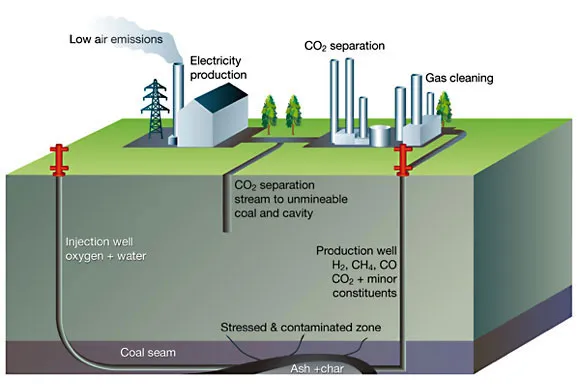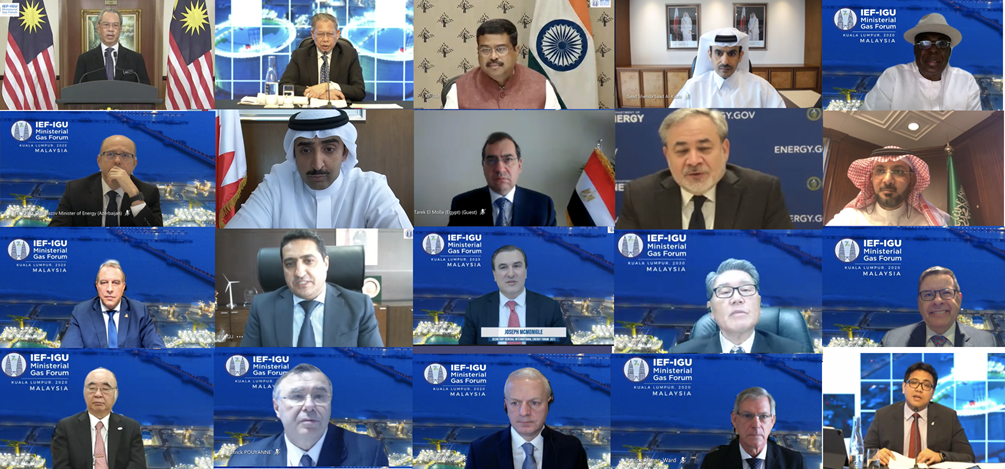The Asia Pacific underground coal gasification market is predicted to expand rapidly over the next decade due to growing coal reserves with newly found reserves, according to Future Market Insights Inc.
In a report on underground coal gasification, Future Market Insights said: With a net valuation of US$ 533.60 Million in 2022, the Asia Pacific underground coal gasification market is expected to develop at a CAGR of 15% over the next ten years. One of the critical forces propelling the Asia Pacific underground coal gasification market forward is the establishment of next-generation gasification facilities that can produce a higher volume of gas in less time in comparison to traditional in situ coal gasification sites.
By 2032, analysts anticipate the Asia Pacific underground coal gasification market is expected to be worth around US$ 2158.71 Million.
The Asia Pacific underground coal gasification market is predicted to expand rapidly over the next decade due to growing coal reserves with newly found reserves in several countries. Also, the rapid population growth and rising energy consumption have boosted the economy, accelerating the underground coal gasification process undertaken by both public and private entities.
Through the past few years, the cities of Asia Pacific, particularly Delhi, Mumbai, Shanghai, Tokyo, and others, have notoriously emerged to be the most polluted in the world. Clean coal technology based on in situ coal gasification is a viable solution to meeting the ever-increasing energy need in the region and other parts.
It would not be surprising if the energy supplied by the underground coal gasification process surpasses natural gas in Asia Pacific economies during the next 20-30 years.
China is the leading market in this sector, with the most underground coal gasification facilities in the region. In terms of surface coal gasification market demand, developing nations like India and Australia are also quickly expanding by significantly contributing to the export of the product to the global market.
Underground coal gasification market players operating in the region’s emerging economies need to be aware of the global market demand and operation of gasification facilities in successful markets to realize their full market opportunity. Another option, increasingly adopted by the regional underground coal gasification companies, is to make the process more cost-effective by minimizing the cost of the oxygen utilized in operation.
Unfortunately, major problems associated with the imposition of rigorous environmental laws on coal-based gasification facilities by several national and international governing bodies may hinder the Asia Pacific underground coal gasification market trends in the coming days.
Furthermore, the imposition of environmental and carbon taxes also results in higher operational costs when compared to competing for minimal or clean emission technologies and can deter the market growth opportunities in Asia Pacific countries.
Asia-Pacific Underground Coal Gasification Market Overview
Global energy demand had seen an exponential growth over the decade due to changing lifestyle. At the time when natural gas prices witnessing fluctuation and coal resources are depleting, the world is witnessing a significant gap between demand and supply of energy.
Though as per World Coal Association, global coal reserves are estimated to be 861 tonne and accounts to 42% of total world electricity production; the year on year growth for coal consumption was highest in FY 2013, making it the highest since 1970. The demand for coal consumption is increasing every year thereby leading to depletion of coal reserves at an alarming rate. Moreover, most regions are economically unviable to extract coal from its bed.
It is due to this reason that companies are looking for alternative solution that can lead to harnessing the total potential of coal, without disturbing the ecological balance.
Underground coal gasification (UCG) is an industrial process by which coal is gasified under intense heat and atmospheric pressure. This enables the production of synthetic gas, constituents of carbon monoxide and hydrogen, which are extracted through a well and utilized in various sectors, ranging from power generation to biodiesel and fertilizer production.
Though this concept is not new to the market, little progress has been achieved in this sector, primarily due to low R&D. However, with growing energy consumption and fluctuating oil prices, industries are focusing on UCG to offer clean, efficient and cost-effective energy to various industries.
Asia-Pacific is projected as the largest market for underground coal gasification over the next 5 years due to impressive growth in end-use industries ranging from power to chemicals. China along with India, and Australia are key markets for underground coal gasification projects.
China is the largest producer as well as the largest consumer of coal based energy. It consumes almost half of the total coal production to meet its energy demand. China has conducted 17 UCG trials since 1991 to check the economic viability of UCG.
Major power generating enterprise SinoCoking Coal is planning to harness coal reserves in Henan Province which was abruptly shut down because of strict environmental compliance set up by Chinese government. UCG is an environmental friendly approach that empowers companies to scale high power generation. With world’s most populated country, China offers a vibrant platform for energy sector companies to set up their base in China and thereby meet the growing demand of energy in China.
Recently, China signed a whooping US $ 1.5 billion major pact with UK for commercial development of UCG in interiors of Mongolia.
Next prominent market is India. In India, mining contributes 10% of India’s GDP. With vast coal reserves, India is looking towards harnessing coal without disturbing ecological balance. There are also some sites which are economically nonviable to mine.
Though India’s untapped 88.6 billion tonnes of non-metallurgical coal is found at a depth of 300 to 1200 metre is economically nonviable; UCG makes it economically sound option. Coal India Limited is trying to push the UCG technology to harness the coal in Kaitha (Jharkhand) and Thesgora (Madhya Pradesh) area. These two promising region is expected to generate high return on investment (ROI) by FY 2025.
Next prominent destination is Australia. In Australia, most companies are undertaking R&D to fully harness the concept of UCG. At present, three major UCG trials is being conducted by Linc Energy, Cougar Energy, and Carbon Energy at Queensland. Australian government is paying a vigil eye on these projects until the technology is commercially proven.
SinoCoking Coal, Cougar Energy, Carbon Energy, Linc Energy, and ONGC are key market players that have conducted pilot projects on UCG technology.
Future is optimistic for underground coal gasification. With major innovations going around globally, it is expected to meet the needs of people in oil shortage region. Regions including APAC, and Africa will be a future market for underground coal gasification segments.
These insights are based on a report on Underground Coal Gasification by Future Market Insights





